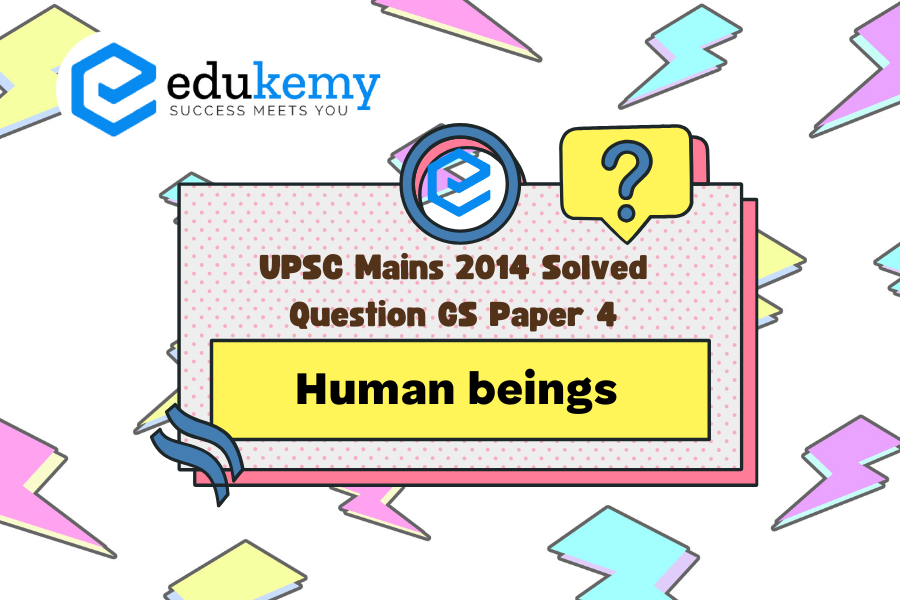Human beings universally share the pursuit of happiness as an intrinsic desire. Whether through material wealth, relationships, achievements, or inner peace, the quest for happiness is a fundamental aspect of the human experience. I strongly agree with the notion that all individuals aspire for happiness. However, defining happiness can vary greatly from person to person. To me, happiness encompasses a state of contentment, fulfillment, and harmony with oneself and the surrounding world. It transcends momentary pleasure and delves into a deeper sense of well-being. For example, spending quality time with loved ones, pursuing passions, or achieving personal goals can bring immense joy and satisfaction. Moreover, acts of kindness, gratitude, and self-reflection contribute to sustained happiness. Ultimately, happiness is subjective, shaped by individual values, experiences, and perspectives, but its pursuit remains a universal endeavor that drives human existence.
Tag: Ethics and Human Interface.
Contents
Decoding the Question:
- In Introduction, try to start your answer with a brief introduction on happiness.
- In Body,
- First, define happiness.
- Second, discuss modern conceptions of happiness.
- In Conclusion, try to end your answer by giving suitable examples.
Answer:
It is indeed true that all human beings aspire for happiness. Human action and behavior are guided by the pursuit of happiness. Aristotle enshrines happiness as a central purpose of human life and a goal in itself.
To me, happiness is the experience of joy, contentment or positive well being, combined with a sense that one’s life is good, meaningful and worthwhile. Though a genuinely happy life requires the fulfillment of a broad range of conditions including physical well being, the ultimate happiness originates from mental well being. We see people caring for numerous physical amenities and material things, but fulfillment of such material desires does not ensure mental well being. On the other hand a relatively less affluent person can be happy and satisfied as he considers mental and spiritual happiness as more important.
Aspiring For Happiness:
- Though the meanings of pleasure are different for different individuals, still the strive of human beings for happiness is a universal phenomenon.
- From the inception humans want to avoid any form of suffering and seek pleasure. One such thought is known as Hedonism.
Meaning of Happiness- A subjective notion:
- Happiness is subjective well-being. Happiness is about being able to make the most of the good times – but also to cope effectively with the inevitable bad times, in order to experience the best possible life overall.
- Or, in the words of the biochemist turned Buddhist monk Matthieu Ricard: “Happiness is a deep sense of flourishing, not a mere pleasurable feeling or fleeting emotion but an optimal state of being.”
- Trying to live a happy life is not about denying negative emotions or pretending to feel joyful all the time. Everyone encounters adversity and it’s completely natural for human beings to feel anger, sadness, frustration and other negative emotions as a result. Happiness and sadness run parallelly.
- Happiness is not devoid of sacrifices. In Fact they make experiences pleasurable. A duty based sacrifice unleashes happiness.
- Modern conceptions of happiness are primarily practical and not philosophical. Martha Nussbaum, a prominent virtue ethicist, claims that modern societies take happiness to “be the name of a feeling of contentment or pleasure, and a view that makes happiness the supreme goods is assumed to be, by definition, a view that gives supreme value to psychological states”.
Since happiness is a subjective well-being, it varies. For example, a UPSC aspirant might be happy by seeing his name in the merit list, a dancer might be happy after a successful performance, social workers might be happy after contributing for the society. So, for a person like me happiness is dependent upon the context and relevance according to the time as aptly put by Hellen Keller “Many persons have a wrong idea of what constitutes true happiness. It is not attained through self-gratification but through fidelity to a worthy purpose.”
In case you still have your doubts, contact us on 9811333901.
For UPSC Prelims Resources, Click here
For Daily Updates and Study Material:
Join our Telegram Channel – Edukemy for IAS
- 1. Learn through Videos – here
- 2. Be Exam Ready by Practicing Daily MCQs – here
- 3. Daily Newsletter – Get all your Current Affairs Covered – here
- 4. Mains Answer Writing Practice – here


